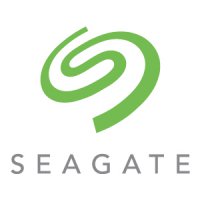The report also identifies the missing link of data management—DataOps—which can help organizations harness more of their data’s value and lead to better business outcomes.
Fremont, California – Seagate Technology plc (NASDAQ: STX), a world leader in data storage and management solutions, today released Rethink Data: Put More of Your Data to Work—From Edge to Cloud. The report—based on a survey of 1500 global enterprise leaders, which was commissioned by Seagate and conducted by the research firm IDC—identifies today’s most pressing data management challenges, and solutions to them. It pinpoints the amount of data available to enterprises that goes unused: 68%.
“The report and the survey make clear that winning businesses must have strong mass data operations,” says Seagate CEO Dave Mosley. “The value that a company derives from data directly affects its success.”
The most significant findings include:
- Data management is increasingly important as data proliferates. IDC projects that over the next two years enterprise data will grow at a 42.2% annual rate.
- Only 32% of data available to enterprises is put to work. The remaining 68% is unleveraged.
- The top five barriers to putting data to work are: 1) making collected data usable, 2) managing the storage of collected data, 3) ensuring that needed data is collected, 4) ensuring the security of collected data, and 5) making the different silos of collected data available.
- Managing data in the multicloud and hybrid cloud are top data management challenges expected by businesses over the next two years.
- Two thirds of survey respondents report insufficient data security, making data security an essential element of any discussion of efficient data management.
The report identifies the missing link of data management: data operations, or DataOps. IDC defines DataOps as “the discipline connecting data creators with data consumers.” While the majority of respondents say that DataOps is “very” or “extremely” important, only 10% of organizations report having implemented DataOps fully. The survey demonstrated that, along with other data management solutions, DataOps leads to measurably better business outcomes. It boosts customer loyalty, revenue, profit, cost savings, plus results in other benefits.
"The findings of this study illustrating that more than two-thirds of available data lies fallow in organizations may seem like disturbing news," said Phil Goodwin, research director, IDC and principal analyst on the study. "But in truth, it shows how much opportunity and potential organizations already have at their fingertips. Organizations that can harness the value of their data wherever it resides—core, cloud or edge—can generate significant competitive advantage in the marketplace."
The survey queried 1500 respondents—500 in the Asia Pacific and Japan region, 475 in Europe, 375 respondents in North America, and 150 in China.
For more information, visit https://www.seagate.com/our-story/rethink-data.
About Seagate Technology
Seagate Technology crafts the datasphere, helping to maximize humanity’s potential by innovating world-class, precision-engineered data management solutions with a focus on sustainable partnerships. Learn more about Seagate by visiting www.seagate.com or following us on Twitter, Facebook, LinkedIn, YouTube, and subscribing to our blog.
About IDC
International Data Corporation (IDC) is the premier global provider of market intelligence, advisory services, and events for the information technology, telecommunications, and consumer technology markets.
©2020 Seagate Technology LLC. All rights reserved. Seagate, Seagate Technology, and the Spiral logo are registered trademarks of Seagate Technology LLC in the United States and/or other countries. All other trademarks or registered trademarks are the property of their respective owners.








